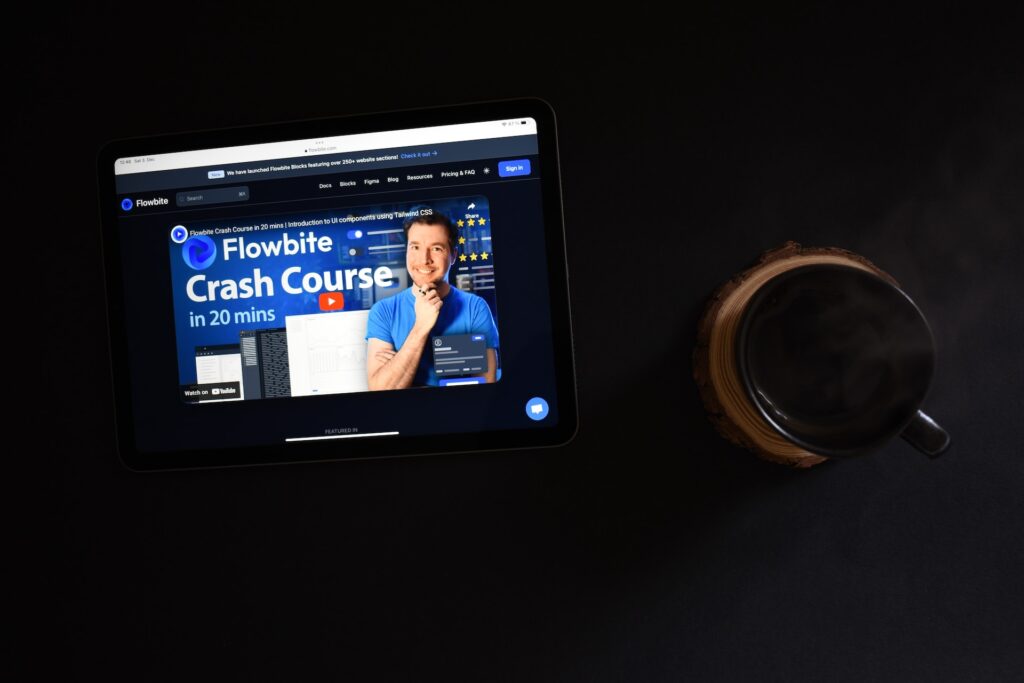C# (pronounced “C sharp”) is a powerful and versatile programming language developed by Microsoft. It is widely used for building a variety of applications, including desktop, web, and mobile applications.
The decision to learn C# opens up a world of opportunities for aspiring programmers and developers. In this article, we will provide a comprehensive guide on how to learn C#, covering essential resources, strategies, and tips to help you master this programming language.
Read as well: What is the best platform for game development?
The story of the programming language of C#
Developed by Microsoft in the early 2000s, C# emerged as a critical component of the company’s .NET framework, aimed at simplifying software development and fostering interoperability across diverse platforms.
The inception of C# can be traced back to Anders Hejlsberg, a renowned Danish software engineer who played a pivotal role in creating Turbo Pascal and Borland Delphi. Drawing inspiration from Java, C++, and other established languages, Hejlsberg and his team set out to develop a language that combined the power of C++ with the simplicity of Visual Basic.

Released in 2000 as part of Microsoft’s .NET initiative, C# was designed to be a modern, object-oriented language that catered to the growing demands of web and enterprise application development. Its syntax, influenced by C and C++, facilitated a smoother transition for developers familiar with these languages.
Over the years, C# has undergone several iterations, introducing new features and enhancements to keep pace with industry trends. Its adaptability is evident in its application across various domains, from desktop software to web development and game programming.
C# has become a staple in the software development landscape, powering an array of applications and frameworks. As an integral part of the Microsoft technology stack, C# continues to evolve, ensuring its relevance in an ever-changing technological landscape. The language’s success is a testament to the collaborative efforts of the development community and Microsoft’s commitment to providing a robust platform for developers worldwide.
How to learn C#: understand the basics of C# syntax
Embarking on the journey of how to learn C# requires a solid foundation in its fundamental syntax. Mastery of essential concepts, including variables, data types, operators, loops, and conditionals, is paramount. These elements form the building blocks of the language, shaping how code is written and executed.
To delve into C# effectively, start by acquainting yourself with the core principles of programming. Understand the role of variables, which act as containers for storing data, and grasp the importance of selecting appropriate data types to represent different kinds of information.

Exploring operators is another critical step, as they dictate how data is manipulated and processed within a program. Whether performing arithmetic calculations or logical operations, a thorough understanding of operators is essential for writing efficient and effective code.
Loops and conditionals, on the other hand, introduce the concept of control flow, allowing developers to dictate the execution path of a program based on specific conditions. These constructs empower programmers to create dynamic and responsive applications by incorporating decision-making and repetitive processes into their code.
To facilitate your learning journey, leverage the wealth of resources available online. Microsoft’s official documentation provides comprehensive insights into C# syntax and features, serving as a reliable reference.
Platforms like W3Schools offer interactive tutorials, allowing you to practice and reinforce your understanding of these foundational concepts. Additionally, various online tutorials cater to learners of different proficiency levels, offering diverse perspectives and approaches to mastering C#.
Set up your development environment to learn C#
Electing and configuring an appropriate Integrated Development Environment (IDE) is a pivotal step in the journey of C# development. A well-chosen IDE significantly enhances the coding experience, offering a suite of tools and features to streamline the development process. Among the plethora of options available, Microsoft Visual Studio emerges as the premier choice for C# developers.
Microsoft Visual Studio stands out as the go-to IDE for many reasons. Boasting widespread adoption, it has become the industry standard for C# development due to its user-friendly interface and robust feature set. This comprehensive IDE not only provides an intuitive coding environment but also offers powerful debugging tools, code navigation features, and integrated support for version control systems.
For those who lean towards a more lightweight and flexible IDE, Visual Studio Code is a compelling alternative. Despite its streamlined design, Visual Studio Code doesn’t compromise on functionality. It’s renowned for its versatility, supporting a wide range of programming languages, including C#. With an extensive library of extensions, developers can customize Visual Studio Code to suit their preferences, making it an ideal choice for those who prioritize efficiency and a personalized coding experience.

How to learn C#: practice coding regularly
Achieving proficiency in any programming language hinges on a steadfast commitment to consistent practice. Immerse yourself in a spectrum of coding exercises, challenges, and projects to solidify your grasp of C# concepts and principles.
Establishing a routine that includes hands-on coding activities not only reinforces your theoretical knowledge but also cultivates the problem-solving skills essential for real-world application.
Numerous online platforms provide an array of coding challenges tailored for those who seek to learn C#. Embrace the diverse opportunities for practice offered by websites such as HackerRank, LeetCode, and CodeSignal. These platforms serve as invaluable resources, presenting a curated selection of challenges that cater to various difficulty levels and facets of C# programming.
Dive into algorithmic problem-solving on platforms like HackerRank, where you can tackle challenges ranging from fundamental concepts to advanced data structures and algorithms. LeetCode, renowned for its extensive collection of coding problems, offers a comprehensive space for honing your skills in C# through solving real-world scenarios.
Additionally, CodeSignal provides an interactive environment for C# learners to engage in coding challenges that cover algorithmic thinking, code efficiency, and overall problem-solving proficiency.
The beauty of these platforms lies not only in the diversity of challenges but also in the supportive communities that foster collaboration and knowledge sharing. As you navigate through coding exercises, take advantage of the opportunity to discuss solutions, seek guidance, and learn from the experiences of other C# enthusiasts.
Incorporating coding challenges into your learning routine transforms theoretical knowledge into practical expertise. By consistently tackling exercises on these platforms, you not only enhance your coding proficiency in C# but also cultivate a mindset geared towards creative problem-solving—an invaluable skill for any aspiring programmer.
Stay updated with industry trends
Remaining abreast of the ever-evolving landscape of technology is imperative for anyone navigating the dynamic field of programming, and this holds especially true for those delving into C# development. To stay at the forefront of industry trends, cultivate a multifaceted approach that incorporates diverse sources of information.

Begin by actively following reputable blogs dedicated to C# and broader software development trends. These blogs often feature insightful articles, tutorials, and expert opinions that shed light on emerging practices, updates, and innovative applications of C#. A few noteworthy blogs include the official Microsoft Developer Blog, Main Leaf, and The Morning Brew, which aggregates relevant content from various sources.
Expand your knowledge network by subscribing to newsletters curated by industry experts and organizations. These newsletters distill pertinent information into concise updates, ensuring that you receive timely notifications about the latest advancements in C# and related technologies. Consider subscribing to newsletters from sources like .NET Weekly, C# Digest, or the Visual Studio Magazine newsletter for a curated stream of relevant content directly in your inbox.
Participate in conferences and webinars to immerse yourself in the learning experiences they offer. Attending events such as Microsoft Ignite, Build, or local meetups allows you to connect with experts, witness live demonstrations, and gain insights into upcoming features and best practices. Many conferences also provide networking opportunities, enabling you to engage with a vibrant community of C# developers and enthusiasts and even more people who wish to learn C#.
Seek feedback and collaborate
Embracing a collaborative and feedback-driven approach is pivotal in the journey to mastering C# programming. Instead of toiling in isolation, leverage the collective knowledge and experience of the programming community to enhance your skills and accelerate your learning curve.
First and foremost, actively seek feedback on your code from seasoned developers. Platforms like GitHub, where open-source projects thrive, provide an excellent avenue for sharing your code and inviting constructive criticism. Engaging in code reviews not only exposes you to diverse perspectives but also allows you to identify areas for improvement, ensuring that your coding practices align with industry standards and best practices.
Consider participating in collaborative initiatives such as open-source projects to immerse yourself in real-world coding scenarios. Contributing to projects on platforms like GitHub or collaborating with developers in online communities enables you to work on meaningful projects, refine your coding skills, and gain exposure to various coding styles and methodologies, improving your chances of learning C#.
In addition to project-based collaboration, seeking out a mentor can be a transformative step in your learning journey. For those who wish to learn C#, a mentor offers personalized guidance, shares practical insights, and helps you navigate challenges more effectively. Look for mentorship opportunities in local coding meetups, online forums, or through mentorship programs offered by educational institutions or professional organizations.
Constructive feedback, whether from peers, mentors, or the broader developer community, is a powerful catalyst for improvement. Embrace feedback as a valuable resource that propels your growth, and be open to refining your coding practices based on the insights shared by more experienced developers. This iterative learning process not only sharpens your technical skills but also cultivates a mindset of continuous improvement—one that is integral to a successful and fulfilling career in C# programming.

Mastering C# is a learning path
In conclusion, mastering C# is a dynamic and rewarding journey that opens doors to a diverse range of opportunities in the field of software development. This comprehensive guide has provided a roadmap, covering essential aspects from understanding the language’s syntax to setting up a conducive development environment, engaging in regular coding practices, staying updated with industry trends, and embracing collaboration and feedback.
As you embark on your journey to learn C#, remember that patience and perseverance are key ingredients for success. Enjoy the process, celebrate your accomplishments, and know that each step you take brings you closer to proficiency in C# programming.
Whether it’s refining your coding skills, building real-world projects, or even diving into the exciting realm of game development, Main Leaf offers a custom-tailored solution for your specific needs. From conceptualization to release, we’re committed to ensuring your success and making your development journey seamless and rewarding. Connect with Main Leaf today and let’s bring your ideas to life!

